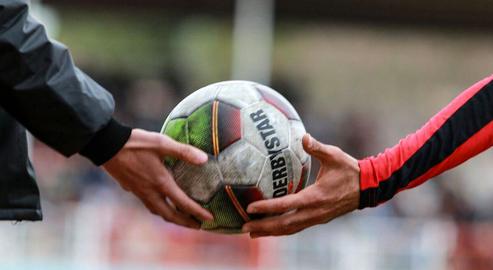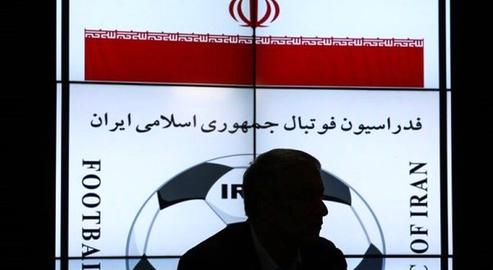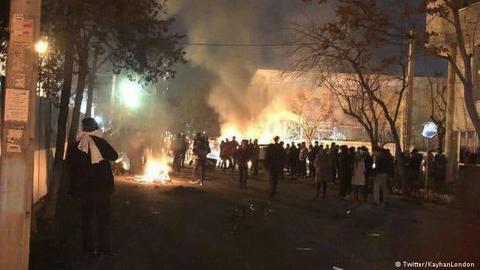The Iran Labor News Agency has reported claims that Iranian football will be suspended if a revised statute for the Iranian Football Federation (IFF) is not instituted by March 2, 2022, saying that the Asian Football Confederation (AFC) has warned the IFF that if issues such as "amendment of the statutes,” “privatization of clubs,” “terminating government involvement in football" and "banning women from entering stadiums" are not resolved, the global football body FIFA will consider suspending Iran’s status in the organization.
FIFA acknowledged in a letter addressed to the Iranian Football Federation on October 21, 2020, that it had received Iran’s amended football statutes but that it still has legal defects.
Hours after the announcement of FIFA's written response, the Tasnim News Agency claimed that FIFA, while criticizing the amended statutes, had left the way open for the election of the IFF president. FIFA had previously barred the IFF from holding any new elections until the new statutes had been finalized due to the obvious interference of Iran's government in the IFF, ongoing gender discrimination and inconsistencies with Iran's FIFA statute.
On July 14, Abbas Ali Kadkhodaei, a member and spokesperson of Iran’s Guardian Council, one of Iran’s highest bodies, announced the approval of the statute of the Amateur Sports Federations of the Islamic Republic. He had said that the statute had been examined by members of the council and that the proposed changes were not contrary to what he called "holy Sharia” law and the "Constitution of the Islamic Republic".
The Guardian Council had earlier objected to the new statutes of the IFF and the National Olympic Committee of Iran. For example, the proposed statutes of sports bodies "being obliged to confront and reject any political, religious and legal, social, economic and gender discrimination pressure" and called the language “ambiguous," “contradictory," and contrary to the "criteria of Sharia" and "Articles 4, 12 and 13 of the Constitution of the Islamic Republic".
But despite Abbas Ali Kadkhodaei's claim that the new statutes of the IFF were not inconsistent with Sharia law and Iran’s constitution, some of its clauses were not approved by Iran’s government and parliament.
The most controversial part of the new IFF statute was where the organization was described as a "public" and "non-governmental" institution. FIFA immediately invoked a law on "companies" in the Islamic Republic, which was approved by the Iranian cabinet, and claimed that the word "public" in Iran's administrative law meant the institution was state-owned and that the title should be removed.
On October 21, Ahmad Reza Barati, a member of the board and chairman of the Football Federation's Regulations and Implementation Committee, asked the Iranian parliament to approve the government's bill to amend various statutes, especially the football federation.
And finally, in December 2020, FIFA agreed to hold the election of the IFF president in March 2021 with the commitment of the federation, to correct the issues under discussion, and to send its statute to FIFA with the approval of Iran’s government up to one year later.
Barati had also warned for the first time about the danger of reaching the FIFA deadline: “Right here, and considering the necessity and sensitivity of the issue, I request the esteemed parliament to examine and decide on this issue as a matter of urgency so that it is not postponed to the last days of the deadline set by FIFA [March 2022].”
The Iran Labor News Agency has now claimed that the IFF has only until March 2 to resolve the objections raised by FIFA in the statute, such as on the privatization of clubs and allowing women to enter stadiums, and that, if this did not happen, "problems" will be created for Iranian football.
On October 31, Fars and Mehr news agencies reported that the elimination of Esteghlal and Persepolis from the AFC Champions League in the 2022 season was finalized due to non-compliance with AFC rules. In recent weeks, the Asian Football Confederation had again challenged the "joint ownership" of the two Iranian clubs by the Ministry of Sports and Youth.
The AFC, in a note to the Iranian Football Federation, Esteghlal and Persepolis clubs, as well as the Ministry of Sports and Youth of the Islamic Republic, warned that the ownership of these two clubs, or at least one of them, should be separated from the Ministry of Sports and Youth, Otherwise, it will exclude both clubs from the next season's Champions League.
Despite the claims of the managers of Esteghlal and Persepolis clubs, that the Asian Football Confederation had given a one-year deadline to privatize these clubs, the AFC has not yet responded to the Iranian Football Federation's inquiry about accepting the professional licenses of these two clubs to play next season.
Currently, in the 16-team table of the Iranian Football Premier League, except for the Havadar, Nasaji and half of the Tractor clubs, the rest of the Iranian clubs are fully owned by the government or the Revolutionary Guards.
Governments or military ownership of football clubs is banned by FIFA and FIFA confederations – though in Iran’s case it is tolerated.
The ban on women entering stadiums is meanwhile backed by a fatwa issued by Ayatollah Ali Khamenei, the Supreme Leader of the Islamic Republic. In 2003, the Jomhuri Eslami newspaper published the fatwa banning women from entering stadiums to watch volleyball matches with the following order: "This is forbidden and it is a violation to do so."
But in an official ultimatum to Iran in 2009, FIFA stated that Iran did not have the right to prevent Iranian women from attending stadiums, either in league competitions or in club games.
And meanwhile, it remains unclear whether FIFA is aware of the case of Shahab al-Din Azizi Khadem, the IFF president, who reportedly has an interest in witchcraft, which is one of FIFA’s red lines. But FIFA and the Asian Football Confederation may well see Iranian football as an “unsuitable” part of its coalition.
Related coverage:
Decoding Iran’s Politics: Football and State Interference
The Corrupt Iranian Football Official Testing FIFA's Patience
Women Have Been Demanding Their Right to Play Football for Half a Century
Iran's Football Association: Speaking About Suspension is Against Our National Interest
visit the accountability section
In this section of Iran Wire, you can contact the officials and launch your campaign for various problems


























comments